- 0 Comments
- By admin
- Latest News Our Blog Services Related
- 357 Likes
Introduction.
Nigeria’s marine industry serves as a vital cornerstone of the country’s economy, facilitating trade, transportation, and the exploration of natural resources. Within this industry, barges play a crucial role as flat-bottomed vessels designed to carry a wide array of cargo. Renowned for their versatility and extensive range of applications, barges have become indispensable in both inland and coastal waterways throughout Nigeria.
In this comprehensive article, we will delve into the classification of barges within Nigeria’s marine industry based on three main criteria:
Classification Based on Types
-
Non-Self-Propelled Barges:
Non-self-propelled barges, commonly referred to as dumb barges, rely on tugboats or other external means of propulsion for movement. These barges are characterized by their flat bottoms and lack of engines or propulsion systems. Their primary purpose lies in the transportation of bulk cargo, construction materials, and heavy equipment.
Non-self-propelled barges offer significant advantages in terms of cost-effectiveness and versatility. By utilizing external propulsion such as the use of tugboats, these barges can adapt to various cargo types and are often employed in construction projects, where the transportation of materials like sand, gravel, coal, and construction equipment is required.
-
Self-Propelled Barges:
In contrast to non-self-propelled barges, self-propelled barges are equipped with their own propulsion systems. This makes them independent vessels capable of navigating without external assistance. This feature grants them exceptional flexibility and suitability for a wide range of tasks, including the transportation of goods, personnel, and offshore operations.
Self-propelled barges stand out as multifunctional assets in Nigeria’s marine industry. Their self-sufficiency enables them to undertake diverse roles, from the transportation of cargo and personnel to supporting offshore activities such as surveying, maintenance, and inspection operations.
According to Barge Features
-
Ramp Barge:
Ramp barges are specifically designed with a built-in ramp at one end, allowing for convenient loading and unloading of vehicles and equipment. These barges are essential for roll-on/roll-off (RO-RO) operations, facilitating the transportation of cars, trucks, and other wheeled cargo between locations.
Ramp barges serve as critical components of Nigeria’s transportation infrastructure, streamlining the movement of vehicles and goods across waterways. They are particularly valuable for intermodal transportation, offering efficient links between coastal and inland terminals.
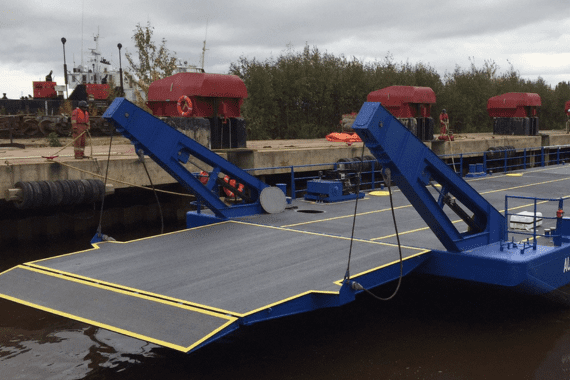
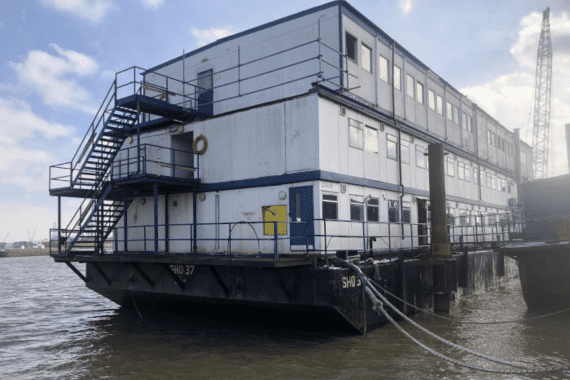
-
Accommodation Barge:
Accommodation barges or house boat serve as floating accommodations used to house personnel, particularly during offshore projects such as oil and gas exploration or construction activities. These barges are equipped with amenities to provide comfortable living quarters, catering facilities, and recreational areas.
Accommodation barges play a significant role in supporting Nigeria’s offshore industry. They ensure the welfare and well-being of personnel working on remote sites, enabling extended operations in offshore exploration, construction, and maintenance activities.
-
Dumb Barge:
Dumb barges, are non-self-propelled vessels featuring a flat bottom. These barges represent the most basic form of barges and are ideal for transporting bulk cargo such as sand, gravel, coal, and construction materials.
The simplicity and robustness of dumb barges make them widely employed in Nigeria’s marine industry. They commonly find application in construction projects, for transporting large quantities of materials cost-effectively across waterways.
-
Hopper Barge:
Hopper barges are characterized by their large open holds, known as hoppers, designed to carry loose materials such as dredged sediments, sand, and gravel. These barges are predominantly used in dredging operations and land reclamation projects.
Hopper barges are vital in maintaining and developing Nigeria’s waterways and coastal areas. They facilitate the removal of sediments, ensuring navigability and preventing waterway obstructions, while also contributing to land reclamation projects that support infrastructure development.
-
Landing Craft:
Landing craft barges are uniquely designed with a bow ramp that can be lowered, allowing vehicles and cargo to be driven directly onto the barge from the shore. They find extensive use in military and humanitarian operations, as well as remote area logistics.
Landing craft barges play a crucial role in Nigeria’s security and emergency response efforts. They facilitate the transport of personnel, vehicles, and supplies to remote and challenging areas, enabling efficient and swift deployment during military operations, disaster relief, and humanitarian missions.
Classification Based on Barge Applications
-
Container Barge:
Container barges are specifically tailored to transport standard-sized shipping containers between ports and terminals along Nigeria’s coastal and inland waterways. These barges play a crucial role in enhancing intermodal transportation efficiency, seamlessly connecting maritime and land-based logistics networks.
Container barges bolster Nigeria’s trade and logistics sectors, ensuring the efficient movement of goods and fostering economic growth. By providing reliable connections between ports, they contribute to reducing road congestion and offer environmentally friendly alternatives for cargo transportation.
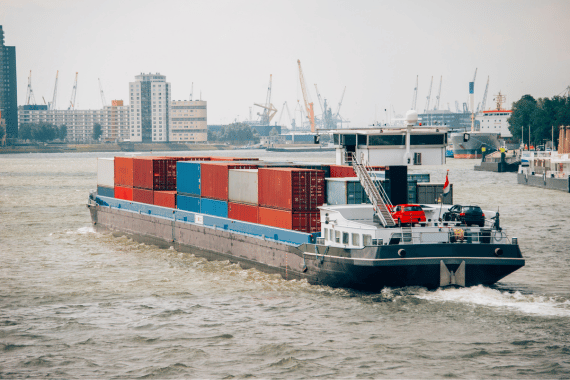
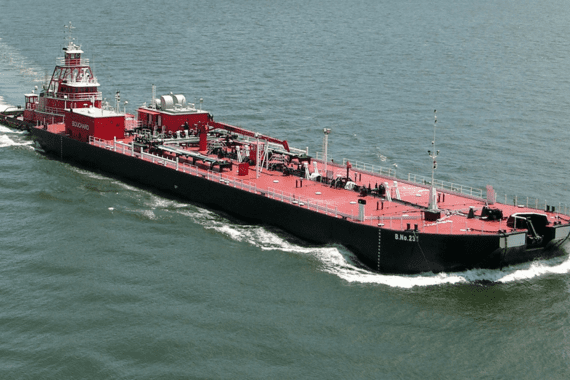
-
Crude Oil/Tanker Barge:
Crude oil barges represent a critical component of Nigeria’s oil and gas industry, which serves as a major driver of the nation’s economy. These barges are primarily responsible for transporting large quantities of crude oil from offshore drilling platforms to refineries or storage facilities.
Crude oil barges play a pivotal role in Nigeria’s oil export operations, facilitating the transportation of valuable resources to domestic and international markets. Their efficiency and capacity contribute to the country’s revenue generation, while adhering to stringent safety and environmental regulations.
-
Car/Truck Ferry:
Car and truck ferries, commonly known as Ro-Ro (roll-on/roll-off) barges, provide an essential link in Nigeria’s transportation infrastructure. These barges enable the seamless movement of vehicles and goods across rivers, lakes, and coastal areas, reducing road congestion and improving connectivity.
Car and truck ferries offer a reliable and efficient means of transporting vehicles and goods across waterways, integrating different modes of transportation. They enhance accessibility and connectivity, supporting regional trade, tourism, and economic development.
-
Grain Barge:
Grain barges are specifically designed to transport bulk agricultural products such as wheat, corn, rice, and soybeans. They play a crucial role in Nigeria’s agricultural sector, facilitating the movement of crops from production regions to processing centers and export terminals.
Grain barges contribute to Nigeria’s food security and agricultural trade by efficiently transporting bulk agricultural commodities. They ensure the timely and safe delivery of crops, minimizing post-harvest losses and supporting the growth of the agricultural sector.
-
Pipe Laying Barge:
Pipe laying barges serve as specialized vessels used in offshore construction projects for laying underwater pipelines. These barges are equipped with heavy lifting equipment and specialized machinery, enabling precise and efficient pipeline installation.
Pipe laying barges play a vital role in Nigeria’s offshore oil and gas industry and infrastructure development. They contribute to the expansion of pipeline networks, facilitating the transportation of hydrocarbons and enhancing the country’s energy sector.
-
Crane Barge:
Crane barges are carry large cranes capable of handling heavy lifting operations. These barges find application in construction projects, port operations, and offshore installations requiring precise lifting and positioning of equipment and materials.
Crane barges provide indispensable support in Nigeria’s construction industry, infrastructure projects, and port operations. Their lifting capabilities ensure efficient and safe handling of heavy loads, enhancing productivity and enabling the completion of complex tasks.
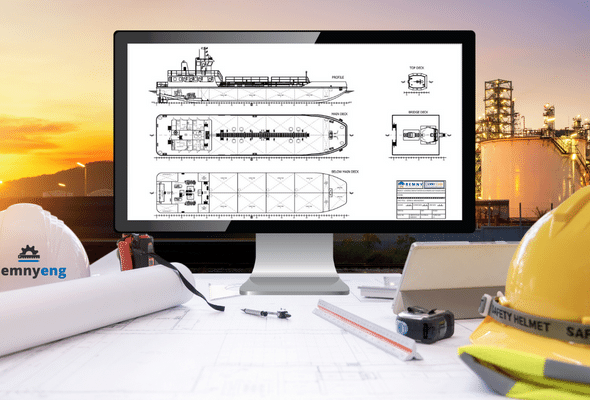
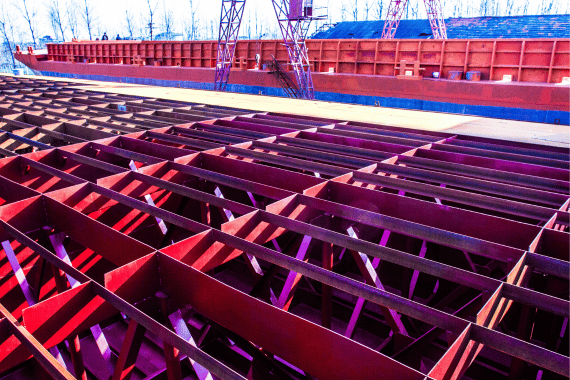
Design and Construction of Barges.
The design and construction of barges require the expertise of naval architecture companies. They specialize in marine engineering and vessel design. These companies provide comprehensive services, encompassing the conceptualization, design, and construction phases of barge projects.
In Nigeria, several reputable naval architecture companies offer their expertise in designing and constructing barges. These companies combine engineering knowledge, technological advancements, and industry standards to deliver tailor-made solutions for various barge types and applications. Click here for more information.
Conclusion.
Barges play a pivotal role in Nigeria’s marine industry, supporting trade, transportation, and infrastructure development. Their versatility, cost-effectiveness, and adaptability make them indispensable assets in both inland and coastal waterways.
From non-self-propelled barges for transporting bulk cargo to self-propelled barges capable of independent navigation, each barge type serves specific purposes. Whether it is the transportation of containers, crude oil, vehicles, or agricultural products, barges provide efficient and environmentally friendly solutions.
The design and construction of barges in Nigeria are undertaken by reputable naval architecture companies. These companies employ their expertise and engineering knowledge to develop innovative designs. This ensures that barges meet industry standards and perform optimally in their respective applications.
As Nigeria continues to invest in its marine infrastructure, the demand for barges will continue to grow. This will drive innovation and diversification in their design and capabilities. The versatility of barges will continue to play a vital role in the sustainable development of Nigeria’s marine industry, supporting economic growth and resource exploration.

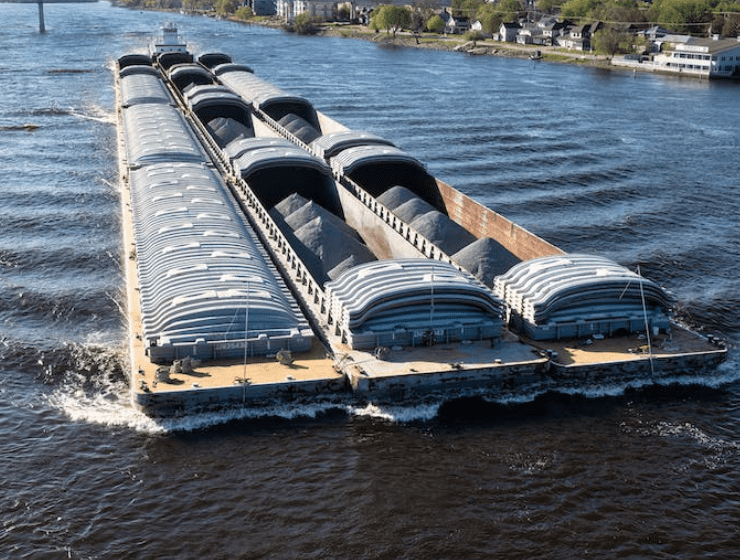
Leave Your Comment